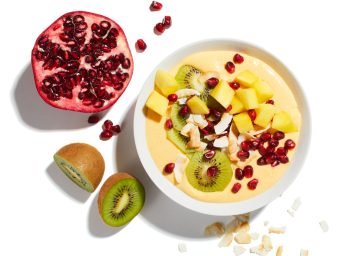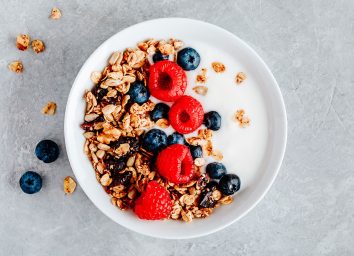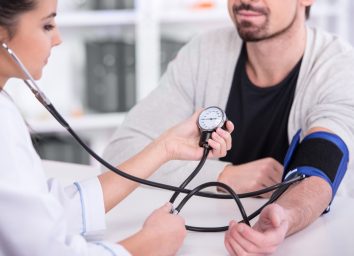The #1 Worst Drink for High Blood Pressure, Say Dietitians
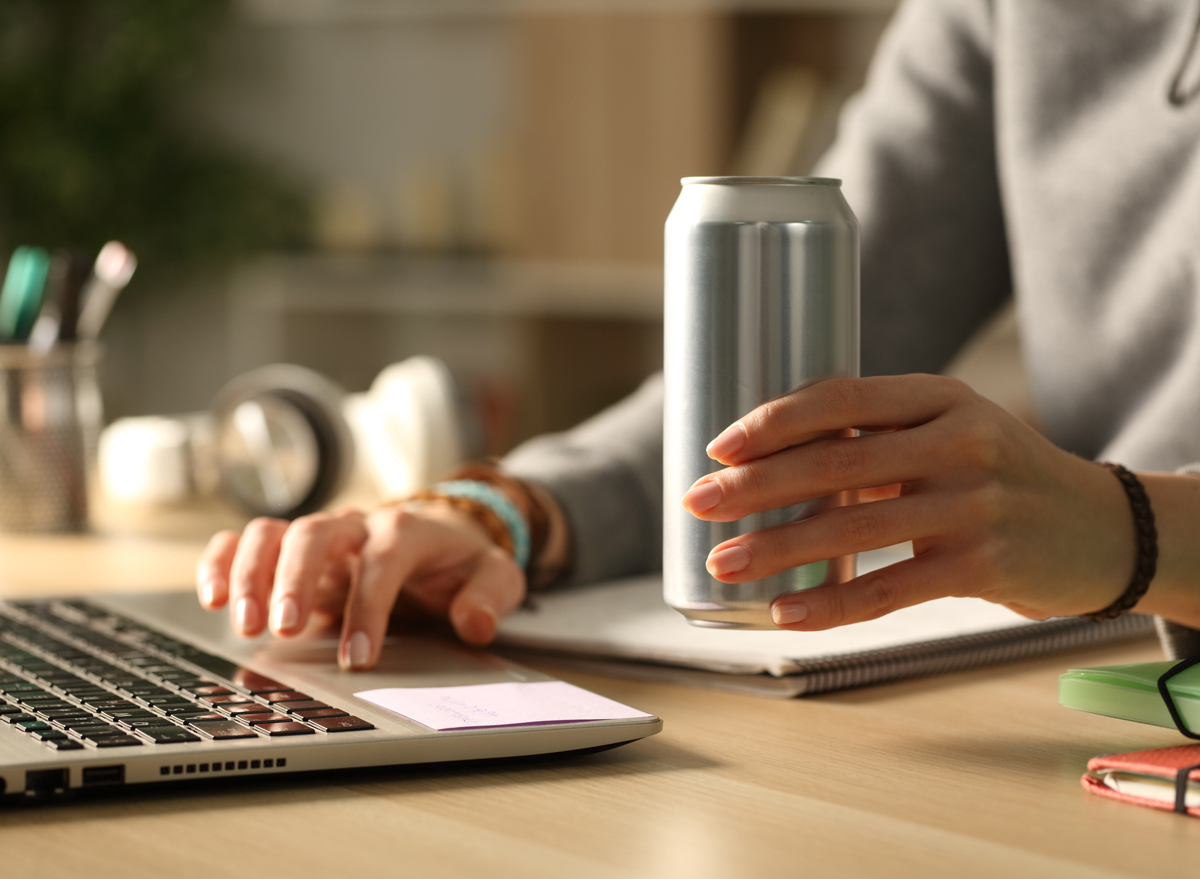
Hypertension, also known as high blood pressure, is a health condition that can be a result of genetics and lifestyle factors. While genetics may play a role in one’s likelihood of developing high blood pressure, lifestyle factors like weight, exercise, nicotine use, stress, and diet can also contribute to blood vessel health.
Sodium may be the first thing that comes to mind when thinking about blood pressure, and while this nutrient can lead to hypertension, there are other dietary components that may exacerbate this health condition as well, including beverages.
In fact, you may not realize that caffeinated energy drinks are the worst drink for high blood pressure. Read on to learn more, and for more on how to eat healthy, don’t miss 12 Dangerous Side Effects of Energy Drinks, According to Science.
First, what is high blood pressure and why is it dangerous?
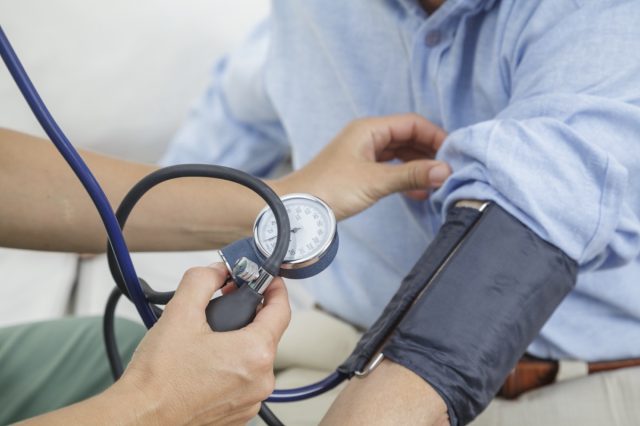
Blood pressure is a common health metric used to evaluate cardiovascular health in adults, and elevated readings may mean more serious health conditions exist. For example, elevated blood pressure may be a sign of plaque build-up in blood vessels that can increase risk for a heart attack and stroke.
Healthy blood pressure is considered to be less than 120/80 mm Hg, where the top number is called your systolic reading and the bottom number is termed diastolic. Data suggests “risk of death from ischemic heart disease and stroke doubles with every 20 mm Hg systolic or 10 mm Hg diastolic increase among people from ages 40-89.”
The potential negative side effects caffeinated drinks have on your blood pressure.
The fluid you consume plays a major role in your blood volume, helping to provide the liquid component to your blood so nutrients and oxygen can be delivered appropriately across your body. However, the impact of the liquids you consume goes beyond blood volume.
Caffeinated beverages, like coffee, soda, and energy drinks can cause your body to release adrenaline, leading to an increase in your blood pressure. According to the Food and Drug Administration (FDA), up to 400 milligrams (mg) of caffeine, which is about 4 to 5 cups of coffee, is not associated with negative health outcomes in most people; however, everyone has a different sensitivity level to caffeine. This means while you may not feel any different after 4 cups of coffee, your friend may feel anxious and notice a rapid heartbeat related to increased blood pressure.
Energy drinks are particularly concerning for blood pressure.
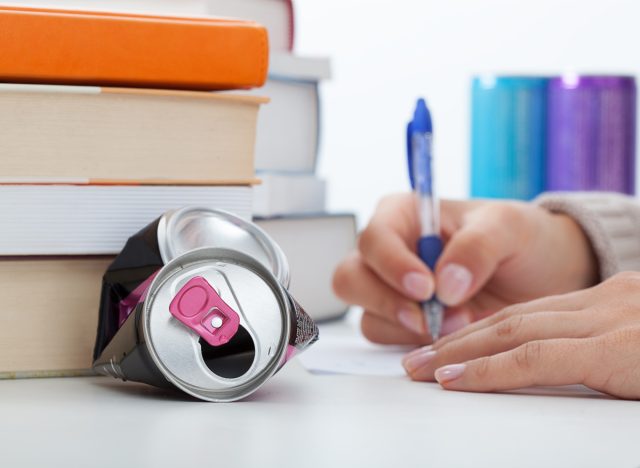
While the caffeine content of coffee can vary from 95 to 200 mg per cup depending on the bean used and brew method, energy drinks, another common source of caffeine, generally contain consistently higher milligrams of caffeine, making them especially concerning for blood pressure.
You may find some energy drinks with around 100 mg per serving, while others have upwards of 300 mg per serving. Sure, one energy drink can keep your caffeine consumption under the 400 mg limit the FDA recommends, but starting your day with a couple cups of coffee, enjoying a caffeinated soda with lunch, and boosting your afternoon energy with an energy drink may provide dangerous levels of caffeine in a single day.
Caffeinated energy drinks are the most worrisome beverage for blood pressure because they tend to be the most concentrated source of caffeine amongst all caffeinated drinks.
Takeaway
It is important to discuss your caffeine intake with your physician as your family history of heart health, current medical conditions, and medications, and lifestyle metrics all need to be considered when evaluating appropriate consumption of caffeine.
Alongside caffeinated beverages, ensure you are drinking plenty of non-caffeinated liquids to promote hydration, which can positively influence blood pressure.
Additionally, best practices when aiming to maintain healthy blood pressure include regular exercise, achieving and maintaining a healthy weight, minimizing stress, and monitoring sodium intake.

